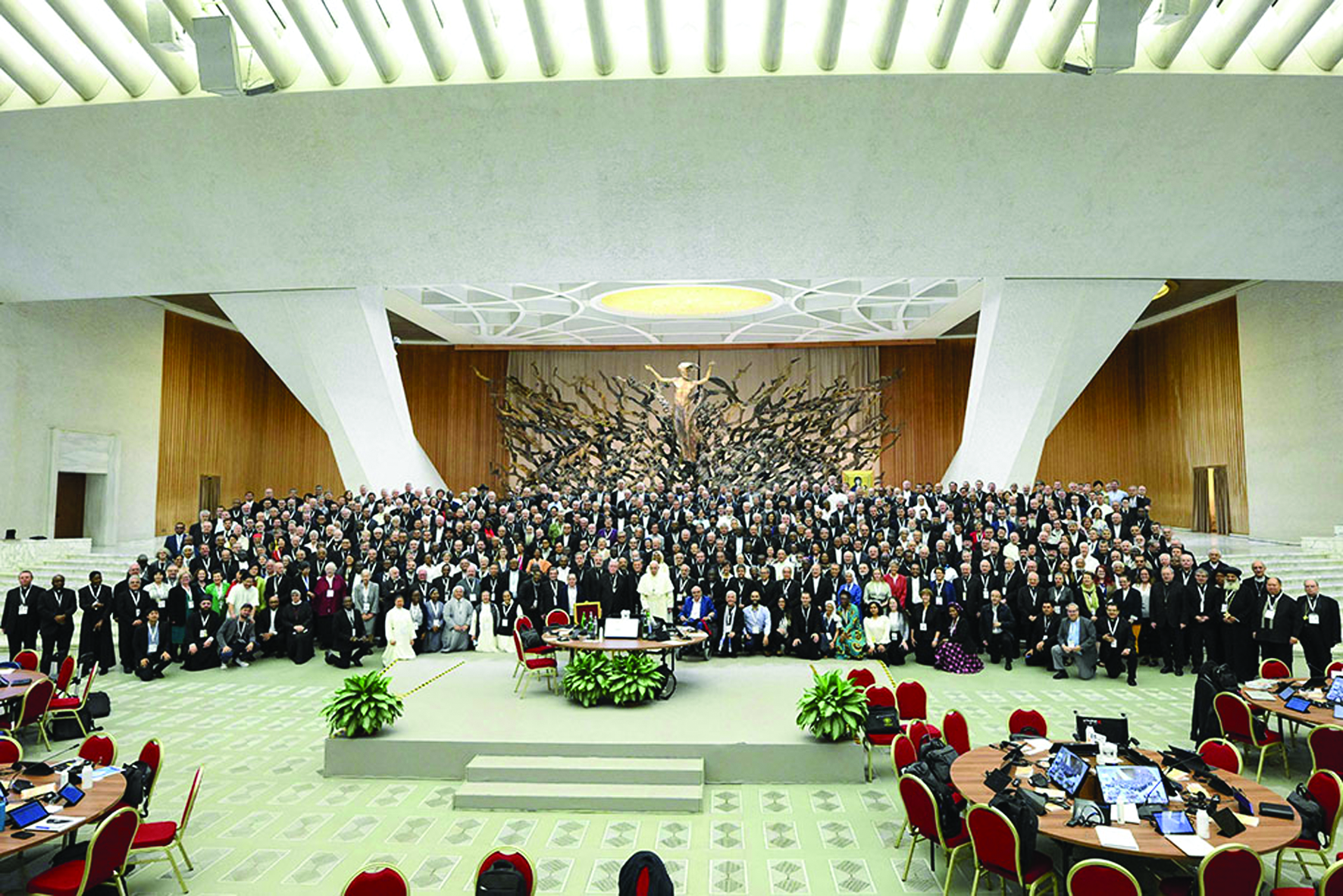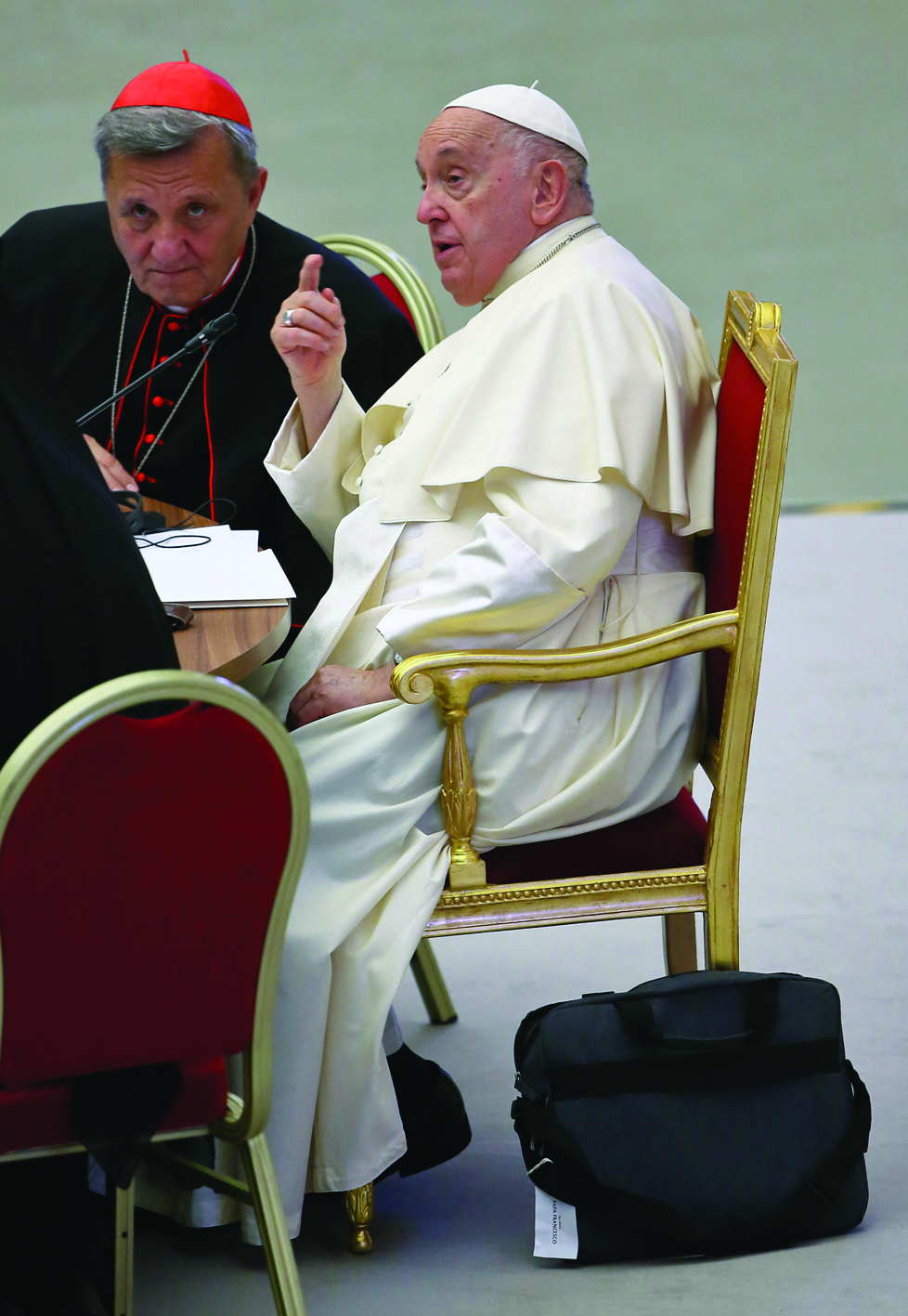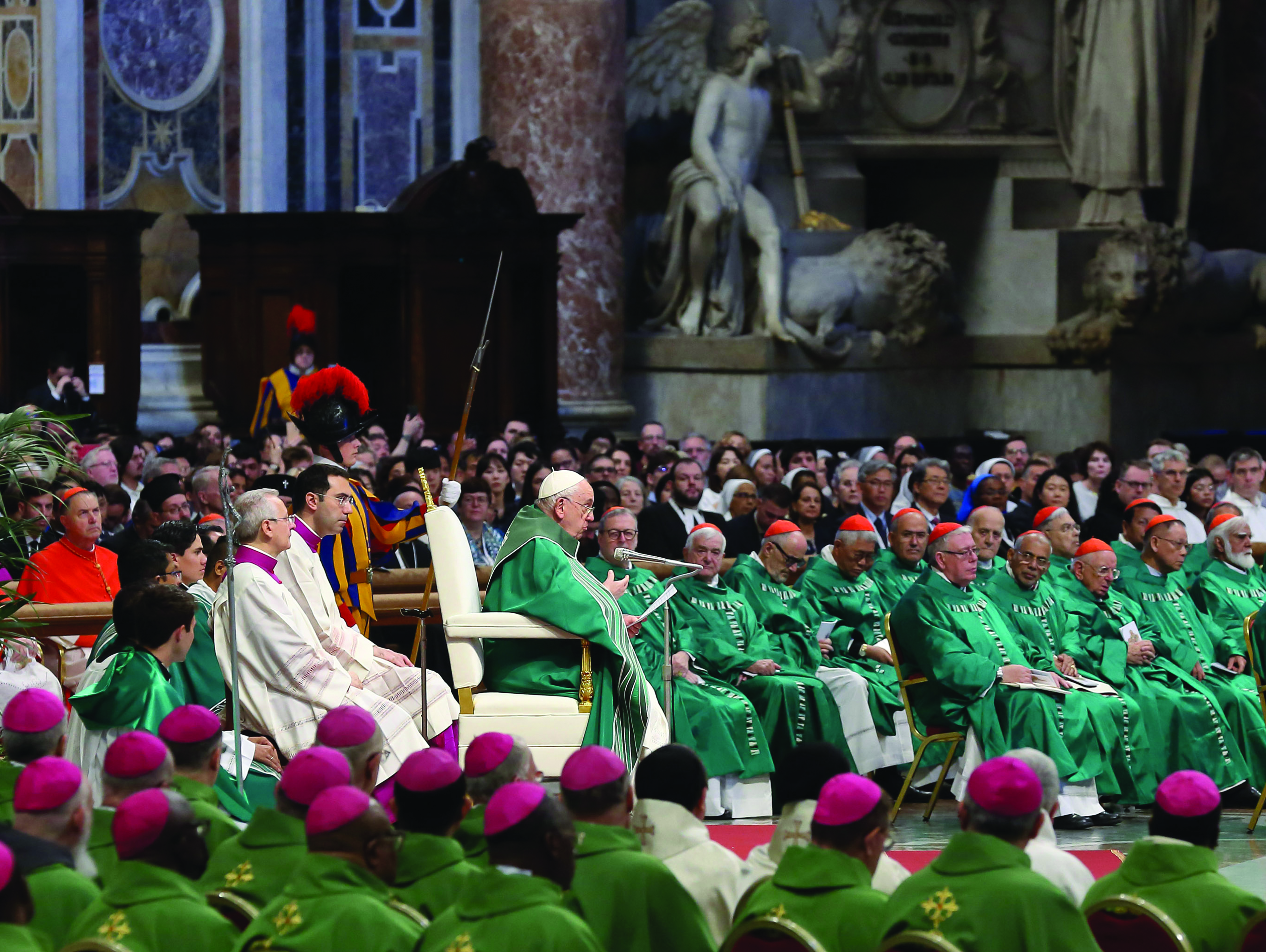“Does the Pope say the divorced and civilly remarried may now be readmitted to Holy Communion? No.”
The Bishop of Portsmouth, England, Philip Egan, has described the Pope’s exhortation Amoris Laetitia as a “magnificent” document, “breathtaking in scope,” and has urged everyone, “clergy and people,” to read and study it. Below we reprint excerpts from his April 24 letter to his diocese.
Pope Francis has just published Amoris Laetitia about love, Christian marriage and family life. This document authoritatively concludes the two recent Synods of Bishops on this topic. It is a magnificent document. Breath-taking in scope, it offers a fresh presentation of Catholic doctrine with many indications for pastoral practice. It will take a long time to assimilate. On behalf of the Diocese of Portsmouth, I wish to welcome this document and to thank the Holy Father. At the same time, I commend it to all our clergy, religious and faithful for careful study and prayerful reflection.
Amoris Laetitia is one of the longest ever papal documents, although it is not difficult to read. It has nine chapters covering everything from the nature of love, engagement and marriage preparation, to Christian family life and the upbringing of children. Chapter Four is a beautiful reflection on the famous passage on love from St Paul’s First Letter to the Corinthians, a reading that couples often choose for their wedding liturgy. Chapter Seven focuses on bringing up children, including the need for authentic sex education. Time and again, the Holy Father repeats the traditional teaching of the Church on chastity, marriage, sexuality and family life, but he does so in a fresh way. He acknowledges with sympathy and compassion the difficulties and challenges many face today…
The Pope’s pastoral intention, with all its balance and nuances, is especially evident in Chapter Eight on the care of Catholics in irregular situations, such as the divorced and civilly remarried. In this Year of Mercy, it seems to me that the Holy Father wants us to reach out to all those Catholics who have drifted away from the practice of their faith because they find themselves in marital situations and patterns of behavior which the Church deems to be inauthentic. Jesus wants to offer them Good News. They are still very much members of His Church, with a part to play. The Pope asks clergy and laity to accompany them, helping them to review their circumstances and to grow in faith. With a wise and good spiritual director, it ought to be possible to help them discern how to live better lives and whether something can be done to regularize their situation. At the Synods, there was a lively discussion about the readmission of the divorced and civilly remarried to the sacraments, and this discussion continues.
But to me, the Gospel story of the disciples on the road to Emmaus (Luke 24: 13-35), with its themes of the presence of Jesus, grace, conversion and truth, is a good image for the kind of ‘accompaniment’ the Holy Father is speaking of and, of course, any process of discernment will surely involve the guidance of the diocesan marriage tribunal.
What to me is new in Amoris Laetitia is the Pope’s application of the traditional distinction between mortal and venial sin to the many messy situations people find themselves in with regards love, sexuality and relationships. For a mortal sin to be committed, three conditions are necessary: grave matter, full knowledge and full consent of the will (cf. Catechism 1857). Good confessors and spiritual directors have always recognized that in sexual sins, full knowledge and/or the act of the will might sometimes be impaired.
Could this be the case sometimes too in a person’s entry into an irregular union?
Some people are in messy situations through no real fault of their own, but through the actions of another. Bearing all this in mind can help pastors and individuals find creative ways forward. In any case, even when people continue living in an objectively sinful situation, this can never mean that God abandons them or no longer loves them.
Has the Church’s teaching changed with Amoris Laetitia? No. It is important to read this, and all papal documents, with a “hermeneutic of continuity and reform” not a “hermeneutic of rupture.”
Amoris Laetitia is totally consistent with Paul VI’s Humanae Vitae, with Familiaris Consortio of St. John Paul II and with the teaching of emeritus Pope Benedict XVI, and Francis frequently cites them. There has been no change in canon law. What is new is the Pope’s direct consideration of messy situations. The Holy Father wants the Church, where necessary, to adopt a new and more compassionate pastoral approach, one that acknowledges the Truth yet more vigorously reaches out with God’s mercy to those who are struggling. This can be a delicate balance, especially for pastors.
A pastor’s role is not to be a strict sheriff, nor an indulgent “fairy-godmother” — nor, for that matter, to adopt an attitude of “Don’t ask, Don’t tell” — but to be a good shepherd, a wise mentor, a prudent spiritual guide, helping people discern their growth and development towards the ideal.
Does the Pope say the divorced and civilly remarried may now be readmitted to Holy Communion? No. What he says is that instead they need a good priest to reach out to them, to accompany them, to help them discern their situation before the Lord and to enable them to develop, to change and to take their proper place in the Church’s life and mission.
—catholicherald.com.uk






Facebook Comments